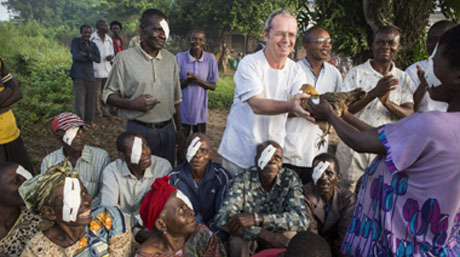We have planned three ophthalmic missions per year to the township of Lusambo, located in the Sankuru district of the Kasai-Oriental province along the Sankuru river.
The small town, surrounded by tropical rainforest and situated at the confluence of several side branches was an important location during colonial times.
The first missionaries arriving in the Kasai region came on the Congo-Sankuru rivers, thus Lusambo was one of the first missionary settlements.
Its charm is due to its location; the river and the beautiful tropical rainforest lend it a wonderful atmosphere.
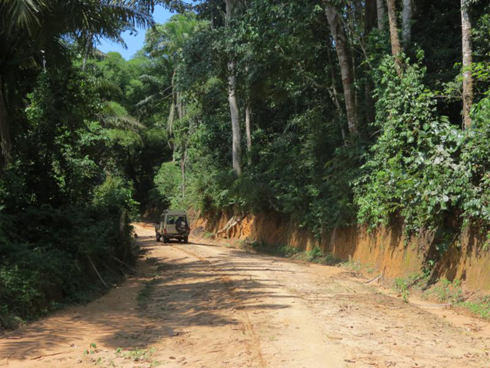
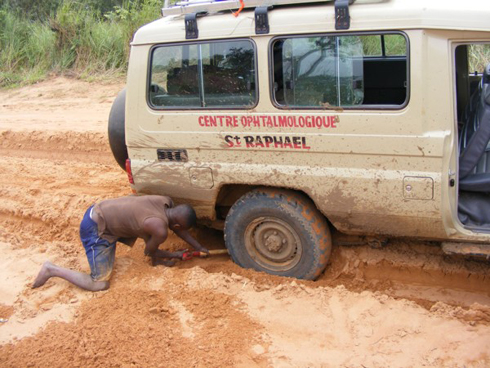
Our journey was very difficult. We started out from Mbuji Mayi at 7 am under a canopy of dense clouds, and we were ready for anything ... It is important at such times to keep up an attitude of resignation; otherwise one would break down from pure anxiety. In addition, our chauffeur once again turned out to be insufficiently familiar with the very bad roads.
After about 30km the rain started to fall and, as it turned out, it rained not only where we were standing... Yes, we were standing, because an overturned truck closed off our access, and we got stuck on the main track... No wonder, in the Congo even the Number One route is sometimes impassable.
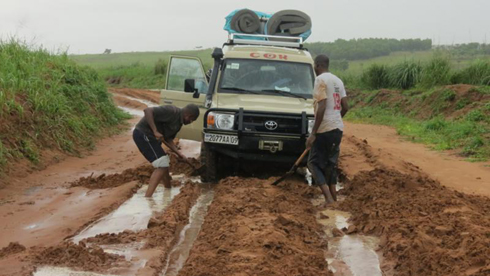
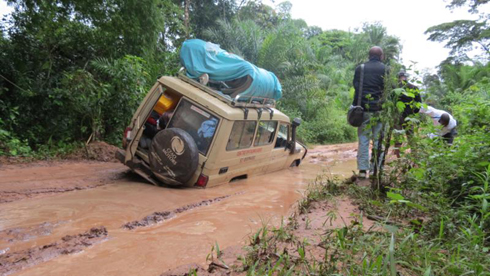
I don’t want to go into too many details of our adventurous trip. Suffice it to say that when evening came, we still had quite a difficult 60kms ahead of us. We decided to stop overnight in a small village. It is exciting to sleep in the villages, in small mud huts. On such occasions the villagers kindly vacate a house, acquire a mattress from somewhere and show us the place ... "Will this be okay for you to sleep in?"
Meanwhile, they catch a passing chicken and prepare it with biasi. We eat slowly, in silence. You do not need a knife and fork. You tear off a small piece of the biasi (something like hard polenta), form a small dumpling and then dip it into the chicken gravy. Everyone gets a piece of meat; these village hens or roosters are tough, but taste very good. We slept well, and the night passed pleasantly. The following day we started off into the jungle. These 60 km are already through dense jungle, on top of it across a hilly countryside. At one spot we fell into a huge hole in the ground, and could barely get out of the car, the water was almost flowing in through the window. It’s good to have a winch, and this time we even find a log. Had there been no winch, we would have had to spend several hours there. As it was, it took us about ten minutes to pull ourselves out of the quagmire...
At last we arrive at the river! Lusambo is on the other side, it is Sunday morning, but the ferry is waiting only for us!
The next day we began the fortnight’s consultation-operation series in the already well-known hospital. As usual, we found about 3-4 patients.
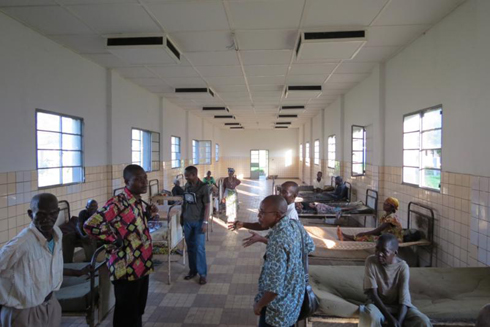
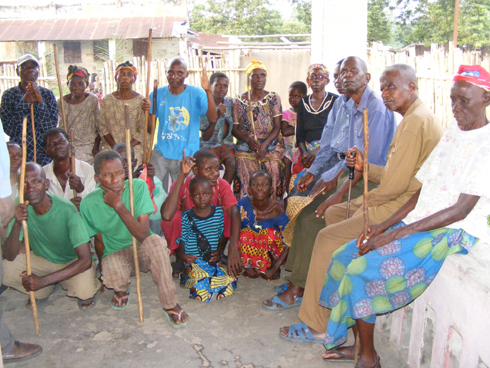
We arrived with a brand new ophthalmic slit lamp, which we left in the hospital. At with the river blindness parasitee. Many people did not want to come (120km), saying they didn’t have a penny to their name, and what would they be living on? They’d rather have the doctor come to them. There is a great deal of fear in this behaviour. The simple people, especially in rural areas, think that we take out the eye, put it on a small plate, scratch it, peel it and then press it back into its place. Isn’t it amazing?
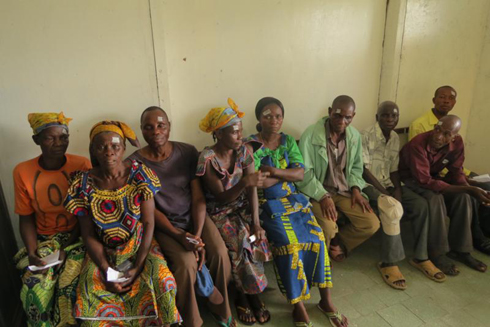
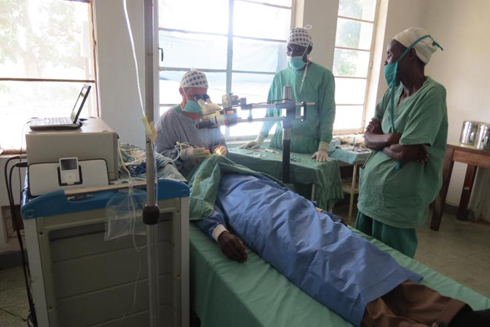
We fill a smaller pavilion with these ‘imported’ patients, the patients are happy; I buy a mat for each of them, and we organize a kitchenette for them. The economic director is happy, as there will be more money; the nursing director is happy that at last there will be a 20% bed occupancy, instead of the usual 3-5%. And last but not least, the doctor is happy that the world will open up to that many more patients.
By the way, these patients are in very poor condition. I anticipate very difficult operations with narrow fibrotic pupils that won’t dilate, patients with monoculus, where one can only hope for a little vision in one eye.
All went smoothly and well, so we are sure that the next time the crew goes to Pania Mutombo there will be a lot of patients. We will have to work out a plan for next time: whether to take all our gear and settle there or bring as many patients as possible to Lusambo… I would really like to go there by boat. The scenery is beautiful, and all kinds of animals - hippos, crocodiles, lots of birds, parrots - can be seen.
In the course of the 12 working days we examined 521 patients and operated on 94 of them. 85% of the cataract operations were performed using the phacoemulsification method. The operations of many very poor patients were financed with the help of the foundation. The hospital charges for cataract operations have been established at around 5000Ft (approx. $23). A number of the patients from Pania Mutombo brought only one chicken.
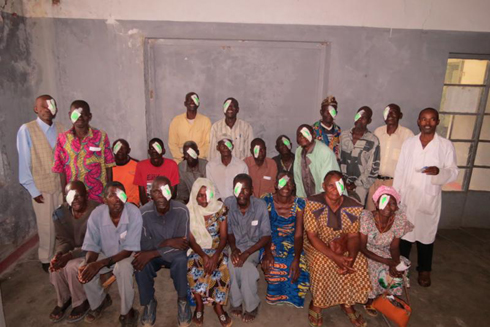
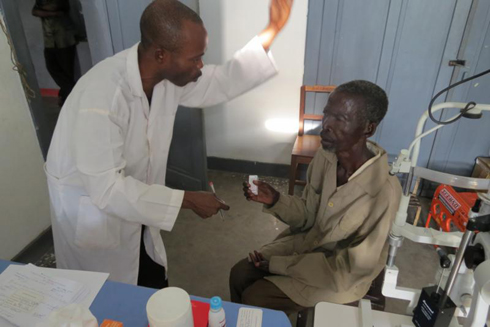
Not a single patient had any postoperative problem; they all recovered nicely.
We were happily preparing for the return journey and praying that the road would be dry. Indeed, all went well, and we arrived back safely in Mbuji Mayi by 4.30.
Goodbye Lusambo until February 2013!



